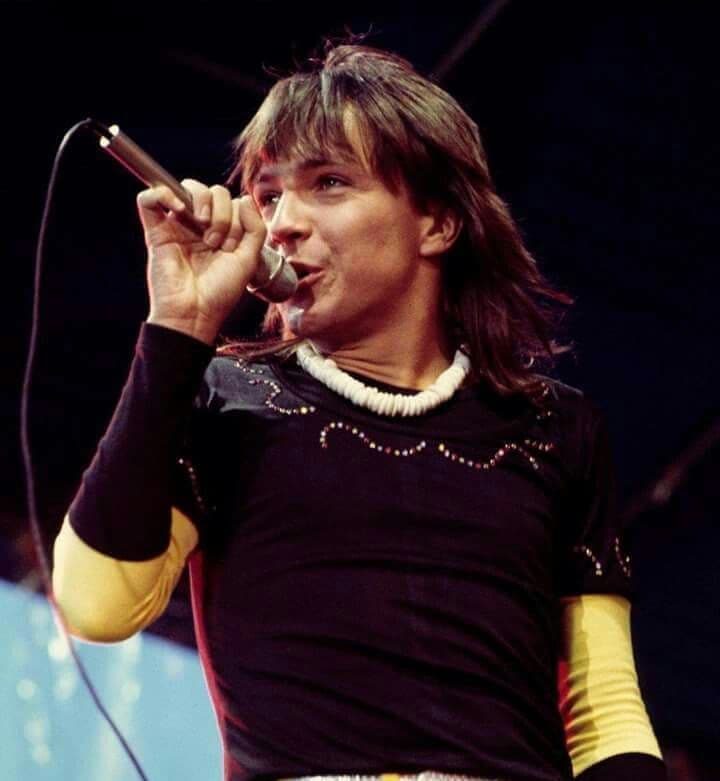
The Lingering Ache of Lost Love: David Cassidy’s Melancholy Ballad, “Hurt So Bad”
Ah, the early 1970s. A time of bell-bottoms, feathered hair, and a certain earnestness in the pop music that filled our transistor radios. Amidst the teen idol frenzy, there was David Cassidy, the charismatic star of The Partridge Family, whose image adorned countless bedroom walls. While many remember his upbeat anthems, there was a deeper, more vulnerable side to his artistry, beautifully captured in the poignant ballad, “Hurt So Bad”. Released in 1971, this song resonated with a generation experiencing the bittersweet pangs of first love and its inevitable heartbreaks. It climbed the Billboard Hot 100 chart, peaking at a respectable number twelve, a testament to its emotional impact on listeners.
The story behind “Hurt So Bad” is one that many could relate to. It wasn’t a tale of flamboyant rock and roll excess, but rather a simple, universal narrative of love lost and the lingering pain that follows. Penned by Teddy Randazzo, Bobby Weinstein, and Bobby Hart, the songwriting trio behind many of The Partridge Family’s hits, the lyrics delve into the raw emotions of a breakup. The song speaks of the confusion and disbelief that often accompany the end of a relationship, the feeling of being blindsided by a sudden departure. Lines like “You said our love was true, how could you leave me?” echoed the sentiments of countless young hearts grappling with similar experiences.
What made “Hurt So Bad” so compelling was Cassidy’s sincere delivery. While he was undoubtedly a teen idol, his vocal performance on this track transcended the bubblegum pop label. There was a genuine ache in his voice, a vulnerability that allowed listeners to connect with the pain he was conveying. The arrangement, with its gentle piano melody, subtle strings, and understated percussion, further enhanced the song’s melancholic mood. It wasn’t a dramatic, over-the-top power ballad, but rather a quiet reflection on the quiet devastation that a broken heart can inflict.
The meaning of “Hurt So Bad” is timeless. It speaks to the universal experience of heartbreak, the feeling that the pain will never truly subside. It captures that initial shock and disbelief, the questioning of what went wrong, and the slow, often arduous process of coming to terms with loss. For many who grew up with this song, it serves as a poignant reminder of those early romantic experiences, the intensity of first love, and the sharp sting of its ending. It’s a song that understands the youthful drama of a broken heart, validating those feelings that at the time felt all-consuming.
“Hurt So Bad” appeared on David Cassidy’s second solo album, “Cherish,” released in late 1971. This album further showcased his growth as an artist beyond his television persona. While “Cherish,” the title track, became his signature hit, “Hurt So Bad” offered a different facet of his musicality, revealing a sensitivity that resonated deeply with his audience. It demonstrated that beneath the heartthrob image was a young man capable of conveying genuine emotion through his music.
Looking back, “Hurt So Bad” remains a powerful reminder of the emotional landscape of youth. It’s a song that evokes memories of slow dances, whispered secrets, and the dramatic pronouncements of everlasting love that sometimes, sadly, don’t last. It’s a testament to David Cassidy’s ability to connect with his audience on a deeply personal level, offering solace and understanding during those tender and often turbulent years. The song’s enduring appeal lies in its honest portrayal of a universal human experience, a reminder that even in the bright-eyed optimism of youth, the shadow of heartbreak can sometimes fall, and when it does, it can indeed “hurt so bad.”